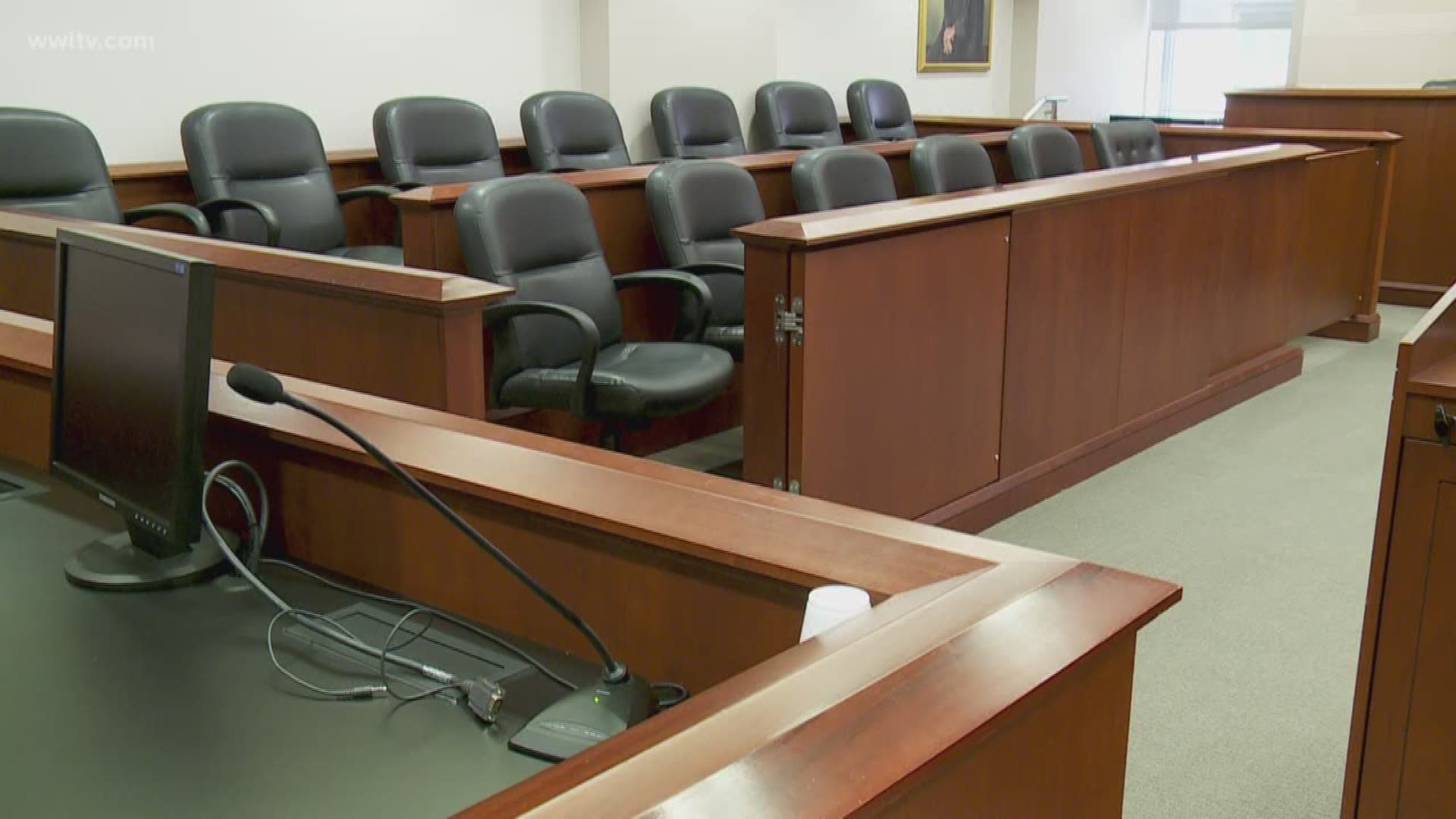NEW ORLEANS- There is a bill making its way through the legislature that is seeking to change a law many call problematic.
For more than a century, the state has handed down verdicts without a unanimous jury vote.
It's a rare law that's only in place in Louisiana and in Oregon.
William Snowden is an attorney at the Public Defender's Office and calls the "Non-Unanimous Jury Law" problematic.
"One of the greatest injustices of our system is when an innocent person is serving time for something they did not do," Snowden said.
The "Non Unanimous Jury Verdict Law" has been in place since 1898.
"What that means is if you have a 12-person jury, if ten people were to vote guilty and two people were to vote not guilty, the ten people who voted guilty would carry the vote," Snowden said.
Carrying a vote, Snowden believes, is tied to a negative and racist time in our country's past.
"In 1898 the threshold was nine to three. And that was created to make it easier to convict Black folks. But also it was created to nullify the Black vote in the event that if African Americans were to get on the jury, their votes could be discarded and their voices simply could not count," Snowden said.
According to a detailed and year-long analysis by The New Orleans Advocate, they found out of nearly 1,000 convictions, around 40 percent of them ended in non-unanimous verdicts.
"When we look at non-unanimous jury verdicts in Louisiana, we know that there have been 11 people who've been exonerated that were originally convicted by non-unanimous jury verdicts. So what that means is when these individuals went to trial, they're actually two people who got it right when the trial was taking place," Snowden said.
Now the non-unanimous verdict law is up for revision.
State Senator JP Morrell drafted a bill that would require all jurors to agree before someone is convicted.
"I've never approached it from the standpoint of race," Senator Danny Martiny said.
State Senator Danny Martiny, who represents Jefferson Parish, says right now he is neutral on the debate.
"It's harder on both sides I guess. But in the same way, you still looking at the possibility of one juror, causing a hung jury. And you'll have to retry the case. I don't think there's any wrong answer to how you vote on this, it's just a question of how you feel and what you think is best for the system," Senator Martiny said.
The bill would need to pass with two-thirds vote in both the full House and Senate before making its way to Louisiana voters.
Several district attorneys declined our request for an interview.

